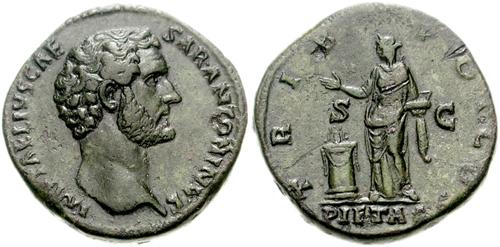From the Latin “pietas” we derive the word piety, which we associate with a religious faith.
For the Romans, however, pietas held an even deeper meaning. It included not only respect and reverence for the gods, but also for country, customs, tradition, and family, particularly parents. Pietas involved doing one’s duty in all things, particularly in caring for mother and father. Love and gratitude were also a part of this blend of virtues, and the person who practiced pietas added to his own dignity and worth. So important was pietas to the Romans that they made it a goddess, a divine personification of duty, loyalty, and honor.






